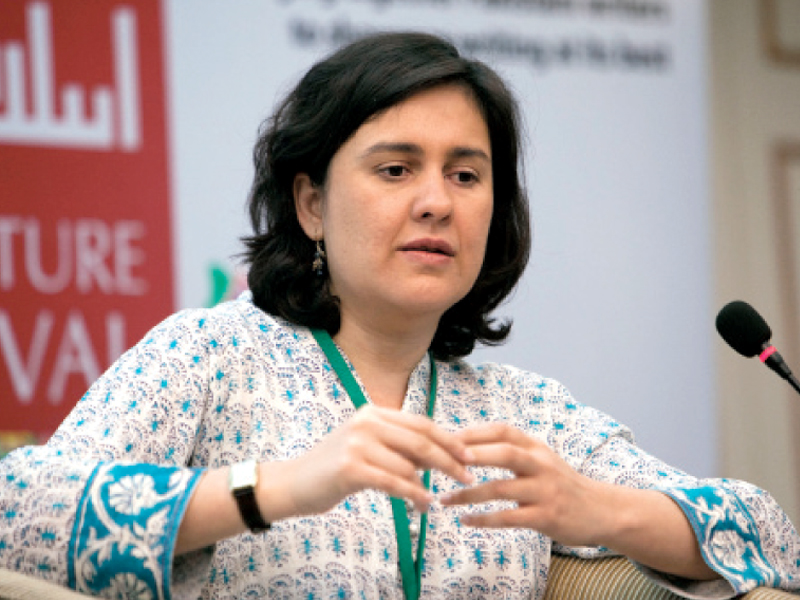
Kamila Shamsie’s discussion on her craft was candid like the voice in her latest novel, “Burnt Shadows” and to a great extent demystified the choices a writer makes to take the narrative forward.
A pioneer of the literary spring in Pakistan, shortlisted for the Orange prize and included in the Granta Best of Young British Novelists 2013, a once-in- a-decade honour, she needed no introduction as said by Shehryar Fazli, the moderator for “In Conversation with Kamila Shamsie.”
An internationally acknowledged writer, she will always be closely identified with cosmopolitan Karachi which served as the backdrop for her first four novels - “In the City by the Sea,” “Salt and Saffron,” “Broken Verses” and “Kartography.”
The novelist dispelled the impression that Pakistani writers cashed in on the War on Terror. “I had no intention of linking up with the post-9/11 scenario in “Burnt Shadows” but you have to follow the demands of the novel.”
However, Shamsie pointed out that it takes at least two years for a novel to mature, so it doesn’t make sense to worry about today’s expectations. “Choose a story which consumes your imagination.” A novel is a multiplicity of characters and opinions, you may not agree with some of them, she added.

“Burnt Shadows” evokes echoes of history like her forthcoming novel which reflects the turmoil of a Pathan soldier wounded in World War I, who questions what he should be willing to sacrifice for his own people after losing an eye fighting for the British Empire. Ravaged by terrorism, Peshawar inspired her to set her novel in a city referred to as the gateway to the subcontinent.
Shamsie has been based in England for the past six years and extensively researched Peshawar in the 1930s at the British Museum. “You don’t have to visit a place to write about it,” said the novelist, who believes that imagination compensates for a lack of practical experience.
Replying to Fazli’s question on what was the point in writing a novel post-9/11, she said she would forgive American writers for asking that in a moment of anxiety. If the novel survived World War I and India’s partition, it could surely survive 9/11. “A novel is a contemplated response to events. Writers can turn moments of historical stress into opportunities.”
An outcome of the question-answer session was some practical advice for aspiring writers. A novelist makes decisions based on the story. Every line should move the story forward, she emphasised. It’s not about the power to make decisions, because it’s not shared with directors and producers like in scripts for theatre or films, she said in reply to a question. “If you don’t write your novel, no one will.”
Fazli also had some words of advice. “Get into the daily rhythm for writing. Don’t wait for inspiration.” Make the story real, so people can relate to it, he added.
Shamsie said literary journals provide exposure and encouraged aspiring writers to take out literary magazines, dubbing them a powerful platform for expression. “If your child wants to be an artist, buy him paint. If he wants to read, buy him a book. He has a lifetime for discovering practicality.”
Published in The Express Tribune, May 3rd, 2013.


1725443747-0/Untitled-design-(5)1725443747-0-165x106.webp)














COMMENTS
Comments are moderated and generally will be posted if they are on-topic and not abusive.
For more information, please see our Comments FAQ